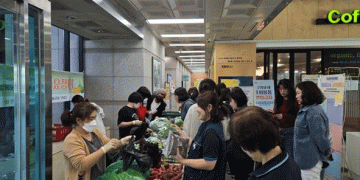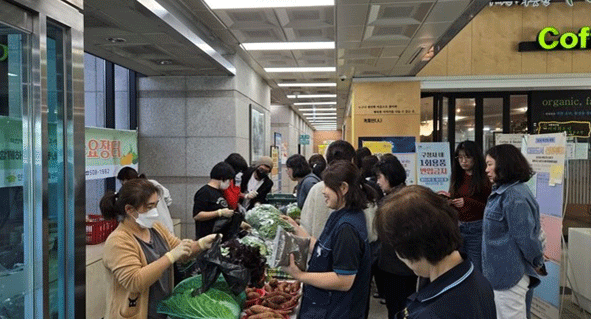In Bupyeong-gu, Incheon, a vibrant initiative has demonstrated how agriculture can transform communities. The “2024 Good Farmer, Good Vegetables Market,” a collaboration between the local government and the Incheon Bupyeong Regional Self-Sufficiency Center, ran successfully from February to November, providing affordable fresh produce to residents and creating valuable employment opportunities for low-income individuals.
Key Achievements
The market, held twice monthly at the Bupyeong-gu Office, achieved notable milestones:
- Frequency and Sales: Over 15 sessions, the market generated a total revenue of KRW 8 million.
- Affordable Produce: Locally grown shiitake mushrooms, potatoes, cabbages, and other vegetables were sold at low prices, ensuring accessibility for all residents.
- Employment Creation: The initiative provided jobs for low-income residents through programs like Songi Farm Land and the Urban Agriculture Project. Participants not only earned income but also gained valuable skills in agriculture and sales.
A Platform for Community Growth
The market was more than a venue for buying and selling. It embodied a model of mutual support and growth:
- Empowering Workers: Participants gained work experience, enhancing their employability and encouraging self-reliance.
- Community Benefits: Residents benefited from fresh, affordable produce, fostering trust and connection with local farmers.
- Sustainable Model: The project aligned with the goals of urban agriculture, emphasizing sustainability and local food systems.
Insights from Local Leadership
According to a Bupyeong-gu official, the market was “a platform for synergy, offering both employment opportunities and affordable access to fresh produce.” The success of the event has inspired plans to expand self-sufficiency projects in the future, strengthening ties between the government, residents, and agricultural workers.
Lessons for Broader Implementation
Programs like the “Good Farmer, Good Vegetables Market” highlight the potential of urban agriculture to address socioeconomic challenges. By integrating agriculture with community initiatives, local governments can drive economic growth, enhance food security, and foster a sense of community resilience.
The success of Bupyeong’s farmer’s market illustrates the transformative power of community-focused agriculture. This initiative not only supported low-income residents but also strengthened local food systems, providing a replicable model for other regions. As urban agriculture gains momentum, collaborative efforts like this will be key to building sustainable and inclusive communities.































